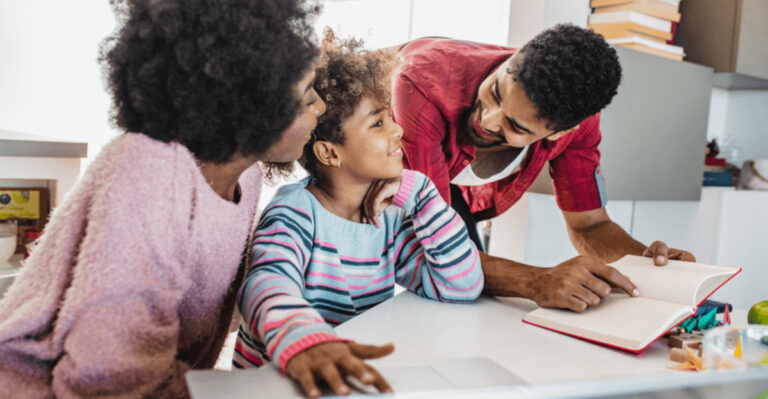11 maneras de reforzar la confianza de tu hijo y actos sencillos que demuestran tu amor
La autoestima de un niño es una flor delicada, alimentada por el calor del amor y la fuerza del estímulo.
You, as a parent, have the extraordinary ability to shape this bloom with your words and actions. It’s about creating moments that make them feel valued and empowering them to believe they can conquer the world.
Here, I share with you ways that I’ve found not only strengthen a child’s confidence but also demonstrate your unyielding love in both small and grand gestures.
1. Escuchar activamente

Listening actively to your child is more than just hearing them speak; it’s about engaging with their words and thoughts. When you sit down and truly listen, you make your child feel important and valued. This not only boosts their confidence but also reinforces the belief that their opinions matter. Imagine the joy of a child whose parent pauses their activities just to listen to them.
Active listening involves maintaining eye contact, nodding, and responding thoughtfully. This shows your child that you’re genuinely interested in what they have to say. Over time, they learn that their voice is significant, and this belief in the importance of their own words is a cornerstone of self-esteem.
Encourage them to share their stories and feelings by asking open-ended questions like, “How did that make you feel?” or “What do you think about this?” These questions prompt deeper conversations and show your child that their thoughts are worthy of exploration. Remember, it’s not just about listening, but about making your child feel heard and respected.
2. Celebre sus logros

Celebrating your child’s achievements, no matter how small, can have a profound impact on their self-esteem. When you acknowledge their successes, you convey the message that their efforts are noticed and appreciated. Whether it’s an excellent grade, a well-drawn picture, or even a completed chore, each achievement is an opportunity to boost their confidence. Make these celebrations sincere and personal. A simple homemade cake with a ‘Well Done!’ written on it or a special dinner can make a child feel incredibly proud. The key is to focus on their efforts and progress, rather than just the outcome. This helps them understand the value of perseverance and determination. Encourage your child to set personal goals and celebrate when they reach them. This practice not only builds confidence but also teaches them to take pride in their hard work. These moments of celebration become cherished memories that reinforce your love and support, helping your child feel valued and empowered.
3. Fomentar la toma de decisiones
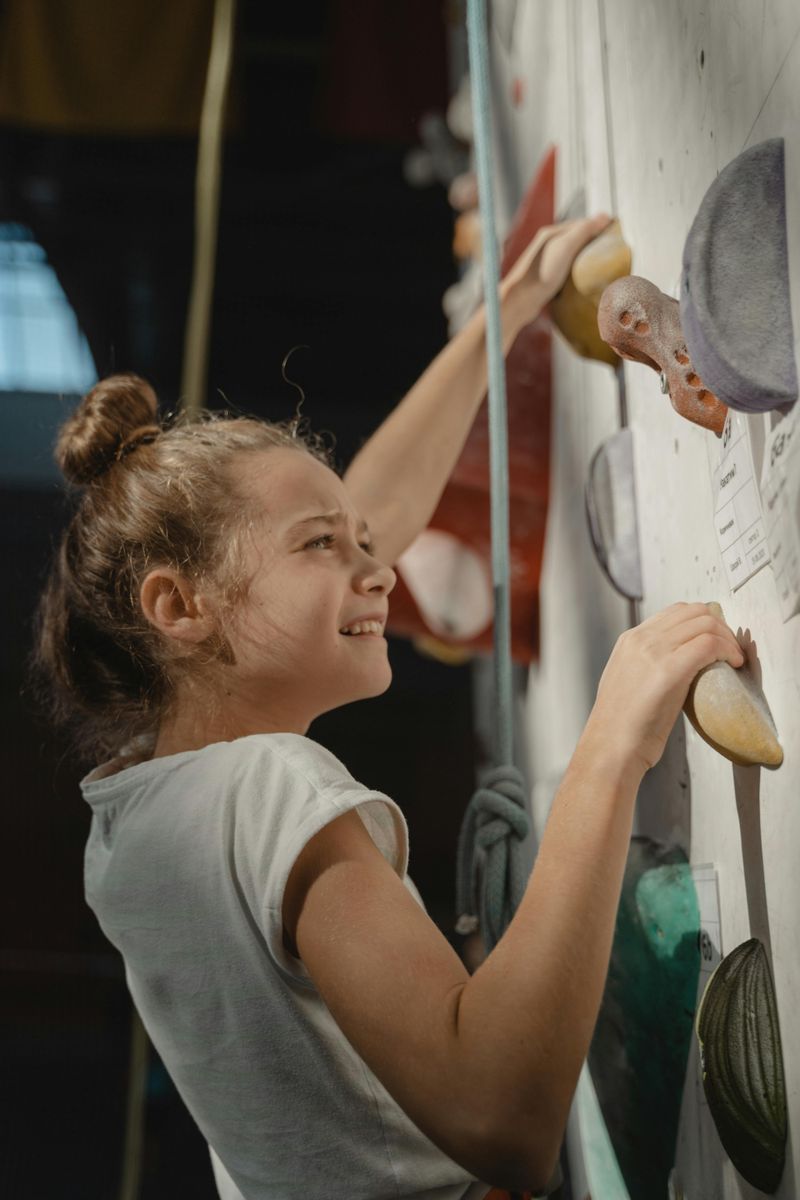
Encouraging your child to make decisions fosters independence and self-confidence. When children are given the freedom to choose, they learn to trust their own judgment and face the consequences of their decisions. Whether it’s selecting clothes, choosing a book to read, or deciding what game to play, these small choices build a foundation for confident decision-making. Guide them through the process by discussing potential outcomes and encouraging them to weigh their options. This helps them develop critical thinking skills and become more self-reliant. A child who feels capable of making decisions is more likely to take initiative and embrace new challenges. As they grow, gradually increase the complexity of decisions they make. This not only boosts their confidence but also prepares them for bigger decisions in life. Celebrate their successes and discuss their mistakes, reinforcing the idea that errors are valuable learning experiences. By encouraging decision-making, you equip your child with the tools to navigate life confidently, knowing they have your support.
4. Mostrar afecto abiertamente
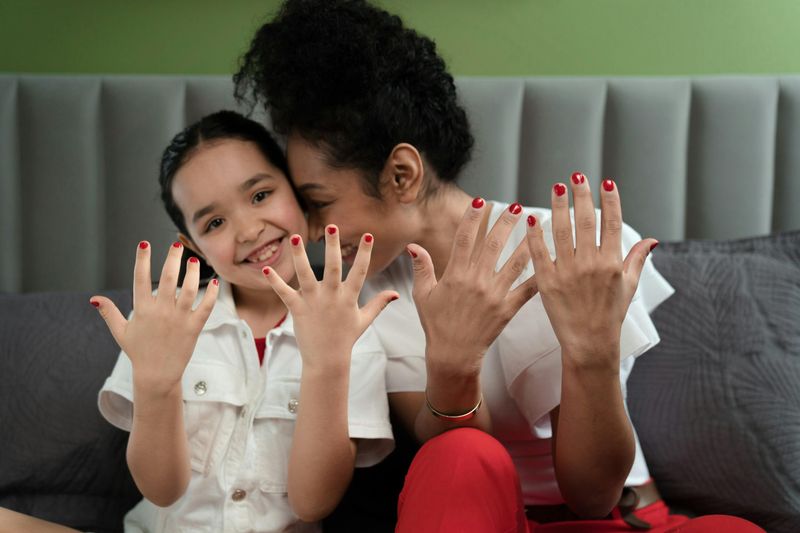
Showing affection openly is a powerful way to communicate love and security to your child. Hugs, kisses, and kind words create a safe space where they feel cherished and understood. This physical and emotional connection lays the groundwork for a strong sense of self-worth and confidence. Affection isn’t limited to physical gestures. Verbal expressions of love, like saying “I love you” or “I’m proud of you,” reinforce your child’s value. These affirmations remind them that they are loved unconditionally, fostering emotional security and resilience. Consistency is key. Make affection a daily ritual, whether it’s a morning hug or a bedtime story. These small acts of love build a reservoir of positive emotions that your child can draw from in times of doubt or stress. By showing affection openly, you provide a foundation of love that supports their growth and development, helping them face the world with confidence.
5. Fomentar el juego al aire libre

Encouraging outdoor play is an excellent way to boost a child’s confidence and well-being. The freedom and creativity that come with playing outside allow children to explore the world around them and discover their capabilities. It’s a simple yet impactful act that shows your love by giving them the joy of adventure and self-discovery. Outdoor play promotes physical health, which is closely tied to emotional well-being. As your child climbs trees, flies kites, or plays tag, they not only develop motor skills but also gain confidence in their physical abilities. This sense of achievement transfers to other areas of their life, fostering a positive self-image. Playing outside also encourages social interaction with other children, teaching them valuable communication and teamwork skills. These interactions help build their social confidence, making them more comfortable in group settings. By nurturing a love for outdoor play, you provide your child with a holistic experience that enriches their mind, body, and spirit.
6. Enséñales a expresar emociones
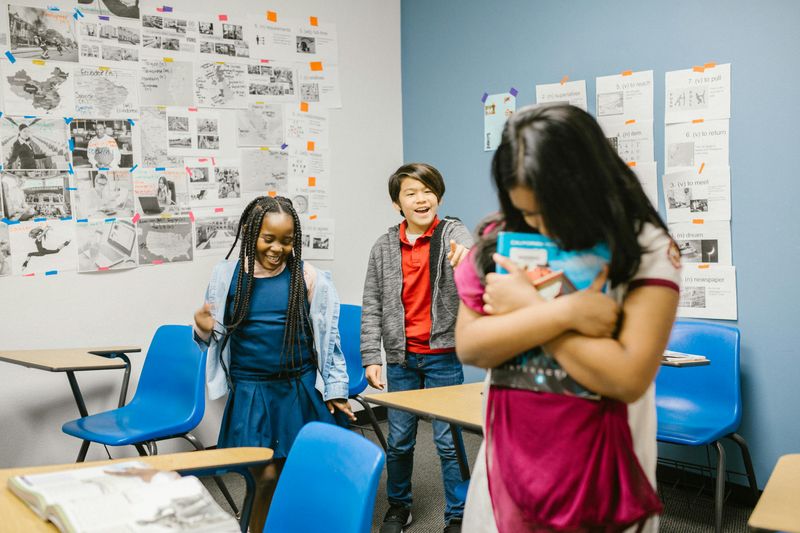
Teaching your child to express their emotions is a crucial step in developing their emotional intelligence and confidence. When children understand and articulate their feelings, they feel more in control and less overwhelmed by their emotions. This understanding fosters a healthy self-esteem and builds resilience. Use tools like emotion flashcards or storytelling to help your child identify and label their emotions. Encourage open conversations about feelings, reassuring them that it’s okay to express both positive and negative emotions. This validation helps them feel understood and loved, strengthening their emotional security. Guide them in problem-solving when they face emotional challenges. For example, if they’re upset about a conflict with friends, discuss possible solutions together. By teaching them to navigate their emotions, you empower them with the confidence to handle various situations in life. This emotional literacy is a lifelong skill that supports their overall development and happiness.
7. Modelar la autoconversación positiva

Modeling positive self-talk is a transformative way to boost your child’s confidence. Children often imitate their parents, so when they see you speaking kindly to yourself, they learn to do the same. This practice helps them develop a positive internal dialogue that enhances their self-esteem. Incorporate positive affirmations into your daily routine. Phrases like “I am capable” and “I can handle this” become a mantra of self-empowerment. Encourage your child to create their own set of affirmations and practice them together, perhaps in front of a mirror. Discuss the importance of kindness towards oneself and highlight areas where they excel. Recognizing their strengths reinforces their self-worth and builds an optimistic outlook. By modeling positive self-talk, you teach your child to focus on their abilities rather than their limitations, equipping them with the confidence to face challenges with a can-do attitude. This nurturing approach cultivates a resilient mindset that benefits them throughout their life.
8. Establecer expectativas realistas
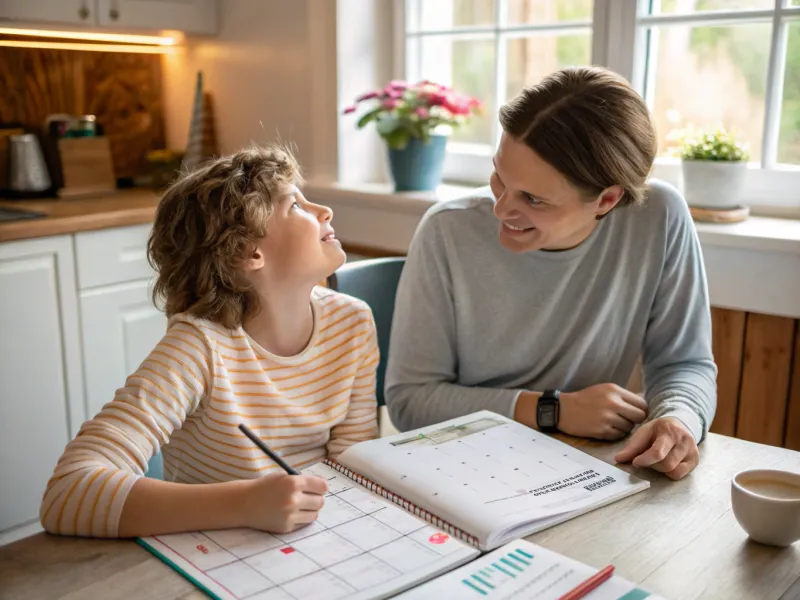
Setting realistic expectations is key to fostering your child’s confidence. When children know what’s expected of them and those expectations are attainable, they are more likely to succeed and feel good about themselves. This boosts their self-esteem and motivates them to take on new challenges. Work with your child to set clear, achievable goals. Whether it’s completing homework, learning a new skill, or helping with household chores, breaking tasks into manageable steps makes them feel less daunting. Celebrate progress rather than perfection, emphasizing effort and improvement. Discuss what realistic expectations mean and why they’re important. This helps your child understand the balance between dedication and the acceptance of limitations. By setting goals together, you teach them to prioritize and manage their responsibilities effectively. This collaborative approach not only builds confidence but also strengthens your bond with your child, reinforcing the message that they’re supported and loved.
9. Crear un espacio seguro para los errores
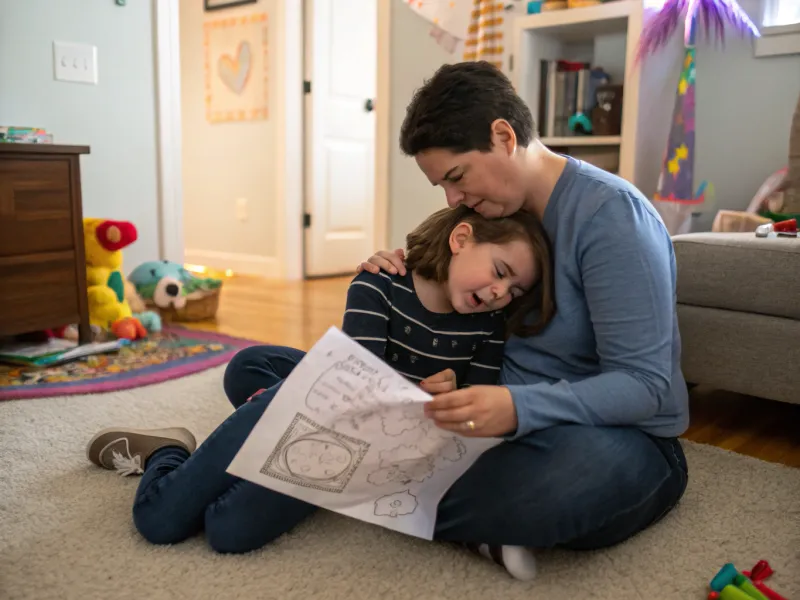
Creating a safe space for mistakes is crucial in building your child’s confidence. When children know they can fail without fear of harsh criticism, they’re more likely to take risks and explore their potential. This understanding transforms mistakes into valuable learning experiences. Encourage your child to try new things and reassure them that making mistakes is a natural part of learning. Discuss your own mistakes and what you’ve learned from them, demonstrating that errors are stepping stones to growth. This perspective helps them develop resilience and a positive attitude towards challenges. When your child makes a mistake, focus on the effort rather than the outcome. Ask them what they learned from the experience and brainstorm solutions together. This approach teaches them to view mistakes as opportunities for improvement, boosting their confidence and creativity. By creating a supportive environment, you empower your child to embrace their imperfections and strive for excellence without the fear of failure.
10. Compartir sus intereses

Sharing in your child’s interests is a powerful way to demonstrate love and foster their confidence. When you take the time to engage in activities they enjoy, you show them that their passions are important and worth sharing. This validation boosts their self-esteem and encourages them to pursue their interests further. Whether it’s baking, building models, or playing a musical instrument, participate in these activities with genuine enthusiasm. Ask questions, learn alongside them, and celebrate their successes. This not only enhances their confidence but also strengthens your relationship, creating lasting memories. Encourage them to teach you something new about their hobby. This role reversal empowers them, as they take on the role of ‘teacher,’ boosting their confidence and communication skills. By sharing in their interests, you create a loving environment where your child feels accepted and inspired to explore their passions without hesitation.
11. Fomentar la resolución de problemas

Encouraging problem-solving is a wonderful way to build your child’s confidence. When children learn to tackle challenges independently, they develop critical thinking skills and a sense of competence. This empowerment fosters a resilient mindset, preparing them for future obstacles. Engage your child in activities that require problem-solving, such as puzzles, building blocks, or strategy games. These tasks encourage them to think creatively and explore different solutions. By working through challenges together, you provide support while allowing them the space to experiment and learn. Guide them in reflecting on their thought processes and the strategies that worked or didn’t work. This reflection reinforces their learning and instills a growth mindset. Celebrate their perseverance and ingenuity, highlighting the journey rather than the result. By encouraging problem-solving, you equip your child with the confidence to face life’s complexities with determination and resourcefulness.
12. Elogiar el esfuerzo por encima de los resultados
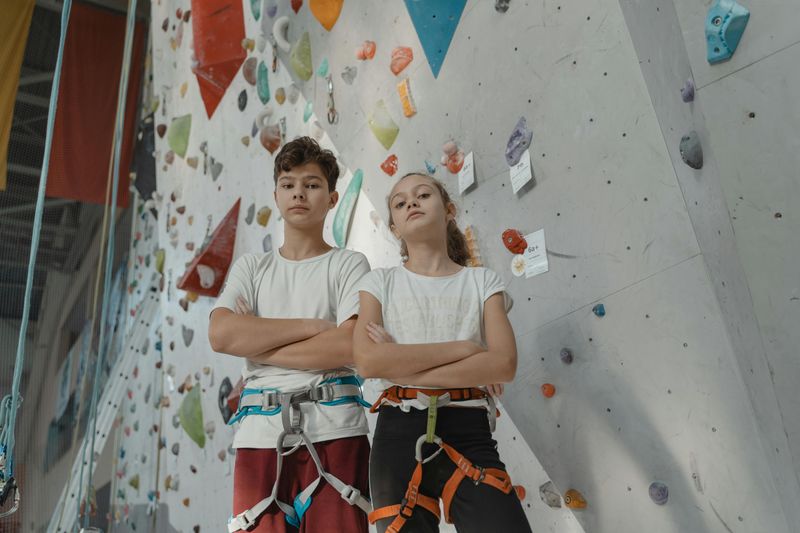
Praising effort over results is a key strategy in nurturing your child’s confidence. When you focus on the hard work and dedication they put into their tasks, rather than just the outcome, you teach them the value of perseverance and resilience. This approach encourages a growth mindset, where challenges are seen as opportunities for development. Recognize and celebrate the effort your child invests in their endeavors, whether it’s a school project, a sports game, or a creative hobby. Create meaningful symbols of recognition, like a homemade certificate or a special family dinner, to honor their dedication. Discuss the process with your child, highlighting what they learned and how they overcame obstacles. This conversation reinforces the idea that success is not solely defined by results but by the journey and growth along the way. By praising effort, you instill a sense of pride and accomplishment in your child, empowering them to take on new challenges with confidence and enthusiasm.
13. Enseñar responsabilidad
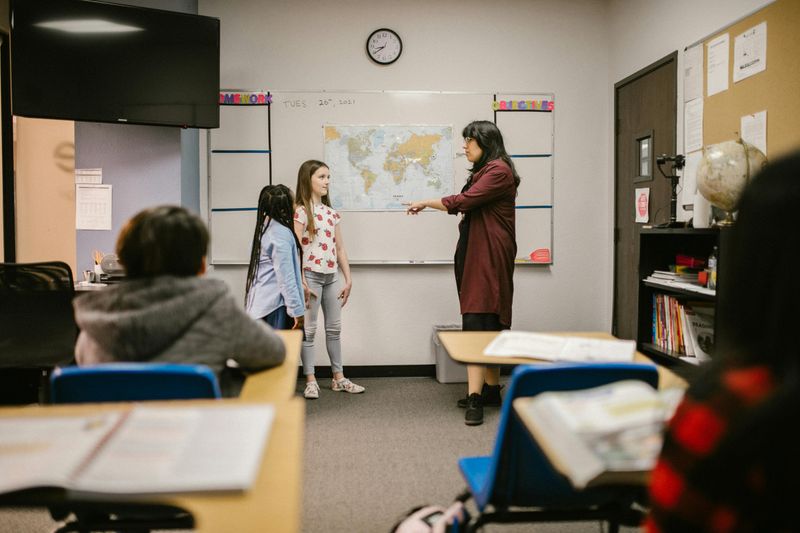
Teaching responsibility is a vital component of building your child’s confidence. When children understand their role in taking care of tasks, they develop a sense of competence and reliability. This empowerment boosts their self-esteem and prepares them for future responsibilities. Assign age-appropriate chores that allow your child to contribute to the household, such as watering plants, setting the table, or organizing their room. These tasks teach them about accountability and the importance of fulfilling commitments. Provide guidance and encouragement as they take on new responsibilities, and celebrate their successes. Discuss the significance of their contributions, helping them see how their efforts positively impact the family. This understanding fosters a sense of pride and accomplishment. By teaching responsibility, you help your child develop the skills and confidence needed to navigate life’s challenges with assurance. This foundation of responsibility enriches their personal growth and strengthens their identity as capable and dependable individuals.
14. Promover la autoexpresión

Fomentar la autoexpresión is a wonderful way to boost your child’s confidence and creativity. When children can express themselves freely, they feel understood and valued, enhancing their self-esteem and emotional well-being.
Anime a su hijo a explorar distintas formas de expresión, como el arte, la música, la escritura o la danza. Proporciónele las herramientas y el espacio necesarios para crear sin juzgarle. Participen juntos en estas actividades, mostrando verdadero interés por sus creaciones.
Discutir su trabajo, haciéndoles preguntas abiertas sobre sus pensamientos y sentimientos durante el proceso creativo. Este diálogo refuerza su sentido de la identidad y les ayuda a articular sus emociones. Al fomentar la autoexpresión, creas un entorno en el que tu hijo se siente capacitado para explorar sus talentos y perspectivas únicos, abrazando su individualidad con confianza y orgullo.
15. Ofrecer opciones

Offering choices is a simple yet effective way to boost your child’s confidence. When children are given the opportunity to make decisions, they learn to trust their judgment and feel more in control of their lives. This autonomy fosters a sense of empowerment and self-worth. Start with small decisions, such as choosing between outfits or picking a book for bedtime. Gradually increase the complexity of choices as they grow, encouraging critical thinking and independence. Discuss the reasons behind their choices and the potential outcomes. This conversation helps them understand the decision-making process and build confidence in their ability to choose wisely. By offering choices, you teach your child that their opinions matter and that they have a say in their own lives. This practice nurtures a sense of agency and responsibility, empowering them to face future decisions with confidence and assurance.
16. Incorporar las tradiciones familiares
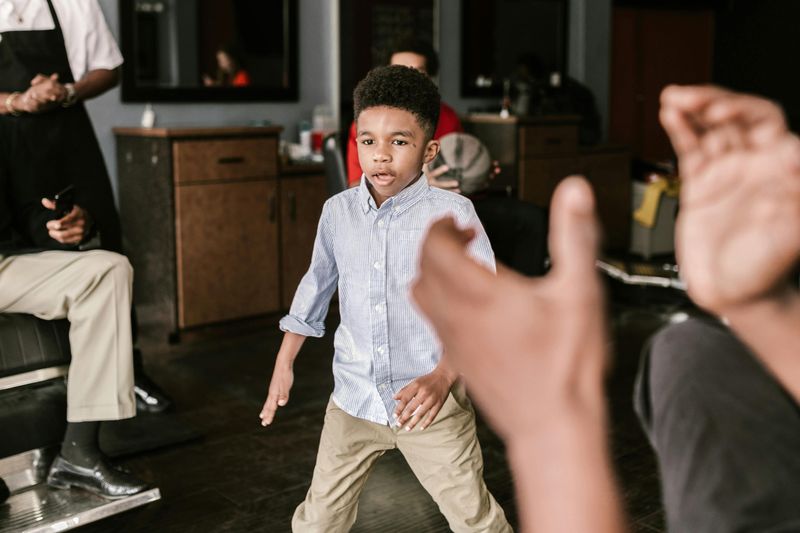
Incorporating family traditions is a meaningful way to strengthen your child’s sense of belonging and confidence. Traditions create a sense of continuity and identity, connecting your child to their roots and providing a stable foundation for their self-esteem. Participate in family traditions together, whether it’s cooking a special meal, celebrating holidays, or enjoying a weekly game night. These activities foster a sense of unity and love, reinforcing your child’s emotional security. Discuss the significance of these traditions and the values they represent. This understanding helps your child appreciate their heritage and develop a strong sense of identity. By incorporating family traditions, you create a loving environment where your child feels connected and valued. This connection enhances their confidence, providing them with the support and security needed to explore the world with assurance and curiosity.
17. Participar en juegos activos
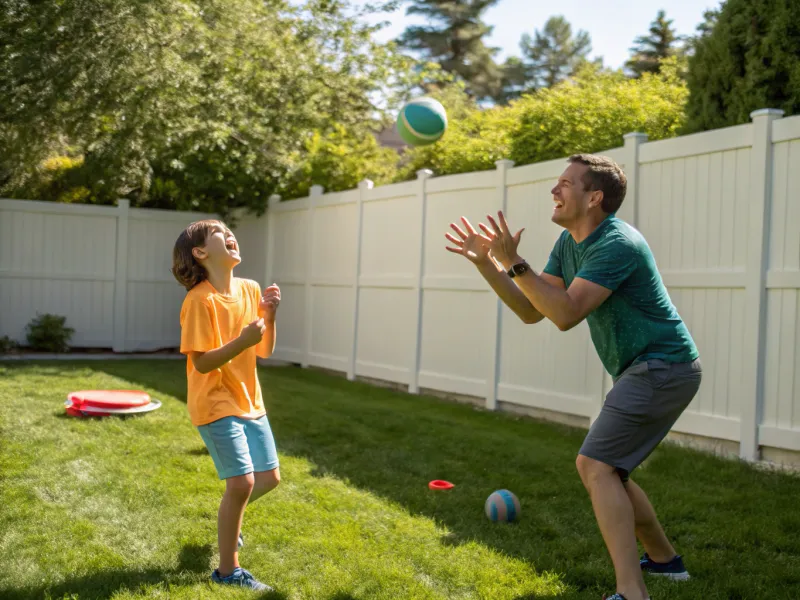
Engaging in active play is a fantastic way to build your child’s confidence and strengthen your bond. Physical activity promotes a healthy lifestyle and boosts self-esteem by enhancing their physical abilities and social skills. Participate in active play together, whether it’s playing catch, riding bikes, or dancing. These activities provide opportunities for fun and connection, showing your child that you value spending time with them. Celebrate their achievements in these activities, whether it’s learning a new skill or simply enjoying the moment. This recognition boosts their confidence and encourages them to pursue an active lifestyle. By engaging in active play, you model the importance of physical health and demonstrate your love through shared experiences. This approach nurtures your child’s confidence, creating a joyful and supportive environment where they can thrive.
18. Enseñar empatía

Teaching empathy is a crucial step in building your child’s emotional intelligence and confidence. When children understand and care about others’ feelings, they develop meaningful relationships and a strong sense of self-worth. Encourage your child to consider others’ perspectives and discuss how their actions affect those around them. Volunteering together or engaging in acts of kindness, like helping a neighbor, fosters empathy and compassion. Discuss emotions and scenarios that require empathy, asking questions like “How would you feel if…?” This dialogue helps them understand the importance of kindness and connection. By teaching empathy, you equip your child with the skills to navigate social interactions confidently and compassionately. This understanding enriches their relationships and enhances their confidence, as they learn to value themselves and others in a supportive and caring way.
19. Leer juntos con regularidad
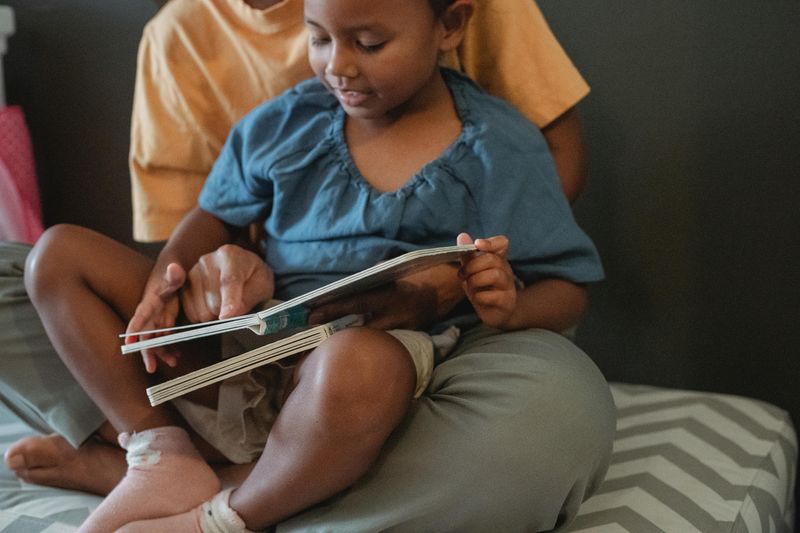
Reading together regularly is a nurturing way to build your child’s confidence and love of learning. Shared reading experiences strengthen your bond and provide a safe space for exploration and imagination. Choose a variety of books that cater to your child’s interests and encourage them to read aloud or discuss the story. This practice enhances their language skills and boosts their confidence in expressing themselves. Engage in discussions about the characters and plot, asking questions that prompt critical thinking and empathy. This dialogue helps your child connect with the story and apply its lessons to their own life. By reading together, you create a loving environment that fosters curiosity and intellectual growth. This shared experience nurtures your child’s confidence, as they learn to explore new worlds and ideas with enthusiasm and assurance.
20. Proporcionar apoyo incondicional

Prestar apoyo incondicional es esencial in building your child’s confidence and emotional security. When children know they have your unwavering support, they feel valued and empowered to pursue their dreams without fear of judgment.
Ofrezca un oído atento y una presencia reconfortante cuando su hijo se enfrente a dificultades. Asegúrele que su amor y apoyo son constantes, independientemente de sus éxitos o fracasos.
Fomenta una comunicación abierta y valida sus sentimientos, ayudándoles a navegar por sus emociones con confianza. Esta comprensión refuerza su confianza en ti y su autoestima.
By providing unconditional support, you create a safe and loving environment where your child feels secure and confident. This foundation of support empowers them to explore their potential and face life’s challenges with resilience and courage.
21. Fomentar la creatividad

Fomentar la creatividad is a wonderful way to boost your child’s confidence and introduce them to new ways of thinking. Creativity allows children to express their ideas and emotions, fostering a positive self-image and problem-solving skills.
Proporcione a su hijo materiales y oportunidades para explorar sus intereses creativos, como dibujar, hacer manualidades o contar cuentos. Fomente la experimentación y celebre sus creaciones únicas, reforzando su autoestima.
Discutir sus procesos creativos e ideas, mostrando un interés genuino por su perspectiva. Este diálogo les ayuda a articular sus pensamientos y aumenta su confianza a la hora de expresarse.
Al fomentar la creatividad, usted crea un entorno propicio en el que su hijo se siente libre para explorar su imaginación y su talento. Esta práctica enriquece su confianza e infunde un sentimiento de orgullo y logro en sus esfuerzos creativos.
22. Limitar el tiempo de pantalla

Limiting screen time is an important step in fostering your child’s confidence and well-being. Reducing screen exposure encourages them to engage in activities that promote learning, creativity, and social interaction. Set clear boundaries around screen use and encourage alternative activities, such as reading, playing games, or spending time outdoors. These experiences enhance their cognitive and physical development, building self-esteem through skill acquisition and social engagement. Discuss the reasons behind limiting screen time and the benefits of diverse activities. This understanding helps your child appreciate the value of balance and makes them feel part of the decision-making process. By limiting screen time, you create a nurturing environment where your child can explore their interests and develop their abilities with confidence and enthusiasm. This practice supports their overall growth and helps them build meaningful connections with the world around them.
23. Enseñar gratitud

Enseñar la gratitud is a profound way to enhance your child’s confidence and emotional well-being. When children appreciate what they have, they develop a positive outlook and a stronger sense of self-worth.
Encourage your child to keep a gratitude journal, where they can write down things they’re thankful for each day. Discuss these entries together, reflecting on the joy and abundance in their life.
Introducir prácticas de gratitud, como escribir notas de agradecimiento o expresar aprecio a familiares y amigos. Estas actividades fomentan el sentido de la conexión y la empatía, aumentando su confianza social.
Al enseñar gratitud, inculcas a tu hijo una mentalidad de positividad y aprecio. Esta perspectiva enriquece su confianza, ya que aprenden a valorarse a sí mismos y sus experiencias, abrazando la vida con un corazón agradecido y una mente abierta.
24. Crear oportunidades de éxito

Creating opportunities for success is an effective way to build your child’s confidence. When children experience success, they develop a positive self-image and a belief in their capabilities. Provide your child with achievable tasks and activities that match their interests and abilities. Whether it’s a science experiment, a craft project, or a sports challenge, these experiences allow them to demonstrate their skills and creativity. Celebrate their successes, no matter how small, and discuss the effort and dedication that led to the achievement. This recognition reinforces their self-esteem and encourages them to pursue new challenges. By creating opportunities for success, you nurture a supportive environment where your child feels empowered to explore their potential. This foundation of success enhances their confidence, inspiring them to embrace new adventures with determination and joy.
25. Fomentar el trabajo en equipo

Encouraging teamwork is a valuable way to boost your child’s confidence and interpersonal skills. Collaborative activities teach children the importance of cooperation and communication, building a strong sense of self-worth and belonging. Engage your child in group activities, such as team sports, group projects, or family games. These experiences foster a sense of camaraderie and teach them the value of working together towards a common goal. Discuss the roles and responsibilities within a team and highlight the strengths each member brings. This understanding enhances their social confidence and appreciation for diverse perspectives. By encouraging teamwork, you help your child develop a supportive network of peers and mentors. This practice enriches their confidence, as they learn to navigate social interactions with empathy, respect, and collaboration.
26. Modelar relaciones sanas

Modelar relaciones sanas is an essential way to build your child’s confidence and understanding of social dynamics. When children observe positive interactions, they learn the importance of respect, communication, and empathy.
Demuestre una resolución de conflictos sana y un diálogo abierto en sus relaciones. Habla de los valores de honestidad, confianza y apoyo, reforzando estos conceptos con tus acciones.
Involucre a su hijo en conversaciones sobre relaciones y emociones, animándole a expresar sus pensamientos y sentimientos. Este diálogo aumenta su confianza social y su inteligencia emocional.
Al modelar relaciones sanas, usted proporciona un modelo para que su hijo desarrolle sus propias conexiones de apoyo y respeto. Esta base enriquece su confianza, ya que aprenden a valorarse a sí mismos y a los demás de forma comprensiva y afectuosa.
27. Participar en actividades culturales

Engaging in cultural activities is a wonderful way to enhance your child’s confidence and broaden their horizons. Exposure to diverse cultures and ideas fosters a sense of curiosity and appreciation for the world. Explore museums, cultural festivals, or international cuisines together, encouraging your child to ask questions and share their observations. These experiences enrich their understanding and inspire them to embrace diverse perspectives. Discuss the significance and history behind cultural practices, fostering a deeper appreciation for diversity. This understanding enhances their confidence and encourages them to explore new ideas with an open mind. By engaging in cultural activities, you nurture a supportive environment where your child can explore their interests and develop their identity with confidence and curiosity. This practice inspires them to embrace their unique perspective and thrive in an interconnected world.
28. Animar a escribir un diario
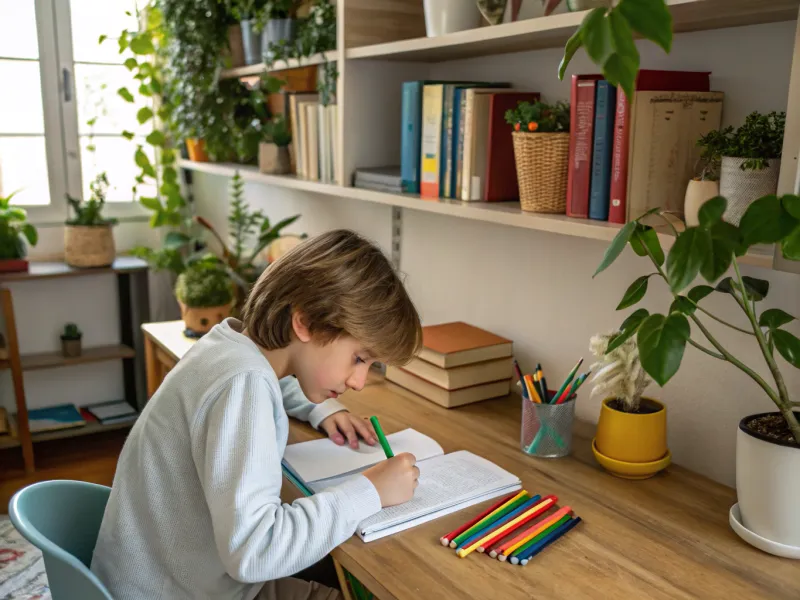
Encouraging journaling is a profound way to boost your child’s confidence and self-awareness. Writing provides a safe space for them to explore their thoughts and emotions, fostering a positive self-image. Provide your child with a journal and encourage them to write regularly, whether it’s about their day, dreams, or reflections. This practice enhances their writing skills and boosts their confidence in expressing themselves. Discuss their entries, if they’re comfortable sharing, and explore the emotions and ideas they express. This dialogue deepens their understanding of themselves and strengthens their self-esteem. By encouraging journaling, you create a nurturing environment where your child feels empowered to explore their inner world. This practice enriches their confidence, as they learn to articulate their thoughts and embrace their unique voice.
29. Crear rituales de conexión

Creating rituals of connection is a meaningful way to strengthen your child’s sense of belonging and confidence. Rituals provide stability and a sense of security, reinforcing their emotional well-being. Establish daily or weekly rituals, such as bedtime stories, family dinners, or weekend outings. These shared experiences foster a sense of unity and love, enhancing your child’s confidence and sense of belonging. Discuss the significance of these rituals and the values they represent, reinforcing their importance in your child’s life. This understanding strengthens their identity and emotional security. By creating rituals of connection, you nurture a loving environment where your child feels valued and supported. This foundation enhances their confidence, as they learn to navigate the world with assurance and a strong sense of self.
30. Fomentar el voluntariado

Encouraging volunteerism is a powerful way to build your child’s confidence and sense of purpose. When children contribute to their community, they develop empathy and a strong sense of self-worth. Involve your child in volunteer activities, such as community clean-ups, food drives, or environmental projects. These experiences teach them the value of giving back and foster a sense of connection and responsibility. Discuss the impact of their contributions and the importance of helping others. This understanding enhances their social confidence and appreciation for their role in the community. By encouraging volunteerism, you create a supportive environment where your child feels empowered to make a difference. This practice enriches their confidence, as they learn to value their contributions and embrace their potential to create positive change.





